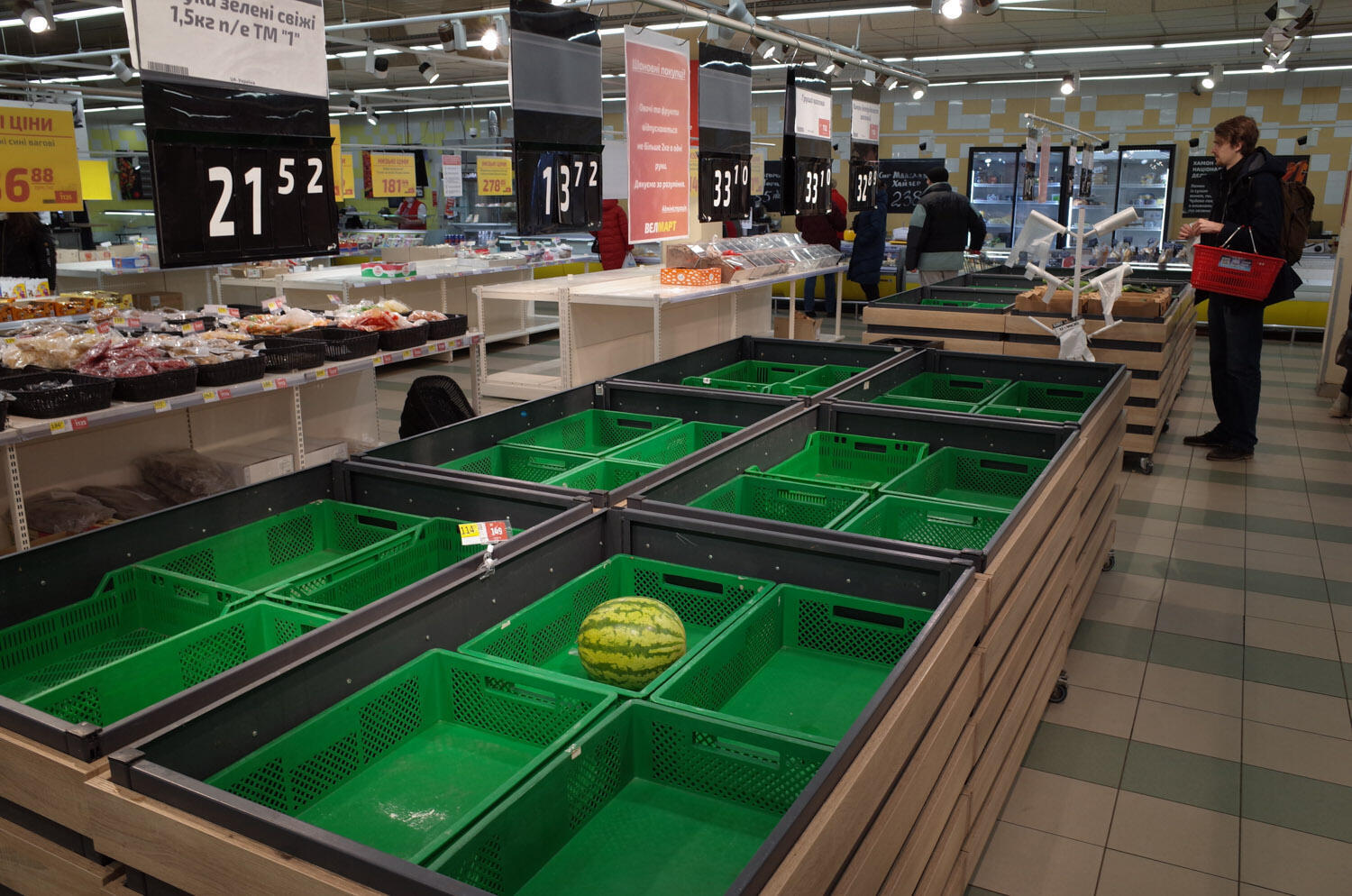The Russian invasion of Ukraine has triggered one of the largest population movements in Europe since World War II. As the Ukrainian army is fortifying the cities, many city dwellers have fled to the countryside, where they have discovered a rural population determined to resist for the long term.
Deserting cities for the countryside is a perennial reaction to war and Ukrainians are no different. Two weeks after the Russian attack began, more than two million Ukrainian refugees have fled to the European Union and Moldova. And a large, though not yet quantified number of displaced people have sought refuge in rural areas inside Ukraine, with relatives or in a second home.
"It's much easier to survive outside the cities. I feel safer in this isolated place, I don't see why the military would waste time and ammunition to come here," Anna Martsinkiv, a sociologist who lives in a small house outside Obukhiv, about 40 kilometres south of Kyiv, told FRANCE 24.
The Russian invasion reminded her of her grandparents' old World War II stories. Resistance fighters in her family were hunted down by both the Nazis and the Soviets. Retreating to the countryside to keep a low profile was the key to their survival.

Almost 80 years later, Martsinkiv has not forgotten this lesson. Her husband, who is involved in Ukraine's Territorial Defence Forces, has applied for a firearm. But when she is at home alone, her personal sense of security comes from her three dogs.
"Another benefit of being in the country is having dogs. They are like my own army, they let me know about any intrusion and can deter ill-intentioned people," she explained. "In addition, they bring a positive energy, they are companions that give you unconditional love.... That's very important to keep your spirits up."

Access to food supplies
As if on cue, a raucous chorus of barking outside signals the arrival of someone in her garden. It is her neighbour, Svetlana Kratchinko, who is bringing some fresh eggs from that day. Another advantage of moving to the countryside is the possibility of having access to food supplies outside the usual means.

Most local fresh produce markets are now closed and Ukrainian supermarkets are experiencing shortages of many key products.
A visit to the Obukhiv hypermarket, located about ten minutes away, reveals surreal scenes. The shelves of canned food, pasta and rice look like they have been raided. The same goes for the baskets that should hold the fruit and vegetables most used in Ukrainian recipes. It is impossible to find an onion or a carrot.

Bizarrely, though, the shelves of sweet items are overflowing. Some exotic fruits – pineapple, mango, passion fruit – are still available.

On day 14 of the war, the bread supply continues, though it is very reduced. But Kratchinko did not wait for supply to be cut off before she started to make her own. "We decided to bake bread on the third day of the invasion, after looking up recipes on the Internet," the 50-year-old housekeeper, who used to go back and forth to Kyiv regularly for her work before the war, told FRANCE 24.
"I had noticed that people were starting to leave Kyiv two weeks before the Russian attack. We already had quite a lot of food stocked up at home, so my priority was to buy medicine for my husband's heart condition. Now we're staying here, we don't want to go too far from home," Kratchinko added.
Pickled vegetables and supplies
The house she has lived in near Obukhiv for 30 years has supplies that would make many survivalists envious. Apart from her chickens, which provide her with fresh eggs and therefore plenty of protein, she has a vegetable garden that allows her to harvest potatoes, cabbage, onions and other vegetables that are very popular in Ukrainian cuisine in spring and summer. Rural residents also keep large quantities of pickled vegetables.

"We've stocked up on a bit of everything in advance in three-litre jars. We also have lots of macaroni, rice, lentils and buckwheat. I have a 50-kilo bag of flour... I don't know how long it will last, we'll see," Kratchinko said with a smile.
Her land also has a well, but the electric pump that brings up the water, one of her few concessions to modernity, will no longer work if there is a power cut. And generators are not common in rural Ukraine.

Sergei, an ex-military man who lives 200 metres away, will not have any problem if this happens. His old-fashioned manual well is fully functional, so he has a guaranteed water supply. He moved here six months ago after buying a house and a large vegetable garden, to live with his elderly mother and her 12 dogs.
"It's important to me because with the war, water could get more and more expensive," said Sergei, who is not worried about running out of food here. "If I had stayed in the city, we would have had to hole up in basements or shelters. Here in the countryside, we are still much freer.”
This article has been translated from the original in French







